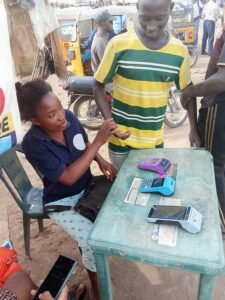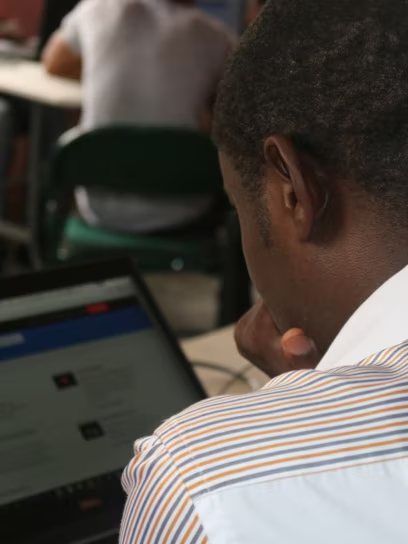In Nigeria, where over 60% of the population is under 25 years old, social media has become a transformative force, reshaping the lives of its youth in positive ways. With platforms like Instagram, TikTok, Twitter, YouTube, and WhatsApp boasting millions of Nigerian users, young people are leveraging these tools for economic empowerment, skill acquisition, and educational advancement. As of 2025, Nigeria’s internet penetration exceeds 100 million users, with a significant portion being youths who have embraced social media as a gateway to opportunities previously out of reach. In this report Sultan Rabiu explores how social media has positively influenced Nigerian youths, focusing on easy ways to make money, remote work, earning through skit videos and online content creation, and the revolution in online education and learning efficiency.
Economic Empowerment: Easy Ways to Make Money

Social media has democratized access to income-generating opportunities for Nigerian youths, enabling them to bypass traditional barriers like limited job markets or lack of capital. One accessible avenue is affiliate marketing, where young Nigerians promote products on platforms like Instagram and Twitter, earning commissions for each sale. In 2023, platforms like Jumia and Konga reported a surge in affiliate earnings, with thousands of youths using their social media followings to drive sales of electronics, fashion items, and household goods. This trend has grown as more Nigerian youths build audiences online, turning their influence into income.
Another lucrative opportunity is the rise of social media marketplaces. Platforms like Instagram and WhatsApp have become virtual storefronts where youths sell everything from clothing to homemade crafts. In Lagos and other urban centers, young entrepreneurs use these platforms to reach customers across Nigeria and the diaspora, often without the overhead costs of physical stores. A 2022 BusinessDay report highlighted how informal online businesses were thriving among youths, with some generating significant monthly revenues, a trend that has only expanded by 2025.
Remote Work: A New Frontier
The global shift to remote work has been accelerated by social media, and Nigerian youths are at the forefront of this trend. Platforms like LinkedIn and Twitter have become hubs for discovering remote job opportunities, connecting young Nigerians with international employers. A Jobberman Nigeria report noted that over 40% of Nigerian youths aged 18–30 had engaged in remote gigs, ranging from virtual assistance to graphic design, often sourced through social media networks. These opportunities allow youths to earn foreign currency while working from home, boosting their financial independence.

Social media also facilitates skill acquisition for remote work. YouTube tutorials and TikTok “how-to” videos have taught Nigerian youths skills like web development, digital marketing, and data analysis, which are in high demand globally. The Nigerian Tech Community reported that over 70% of its young members learned coding or design through free online content shared via social media, enabling them to secure freelance contracts on platforms like Upwork and Fiverr. This access to practical training has opened doors to the global gig economy.
Earning from Skit Videos and Online Content Creation
The explosion of short-form video content on platforms like TikTok and Instagram Reels has turned Nigerian youths into global entertainers and earners. Skit-making has become a viable career path, with creators monetizing their content through brand partnerships, ad revenue, and fan donations. Maryam Apaokagi, known as Taaooma, rose to fame on Instagram in 2019 with her comedic skits. By 2023, she was collaborating with brands like MTN and Pepsi, reportedly earning millions of naira annually, as noted in a 2021 BBC Pidgin interview. Her success has inspired a wave of young creators, particularly in cities like Lagos and Abuja, where skit-making has become a recognized hustle.

YouTube also offers a robust platform for monetization. Mark Angel, founder of MarkAngel Comedy, has built a channel with over 10 million subscribers by 2024, generating substantial revenue from Google AdSense. In 2024, Pulse Nigeria reported that top Nigerian YouTubers earn between ₦500,000 and ₦5 million monthly. Emmanuella Samuel, a teenage star from the channel, has become a household name, illustrating how youths can turn creativity into a lucrative career through social media. These real-world examples highlight the economic potential of content creation for Nigerian youths.
Online Education and Learning Efficiency
Social media has revolutionized education for Nigerian youths, making learning more accessible, faster, and engaging. Platforms like YouTube and TikTok host millions of educational videos, allowing students to grasp complex concepts quickly. A 2023 survey by EduTech Africa found that 65% of Nigerian secondary school students used YouTube tutorials to supplement their studies, particularly in subjects like mathematics and science. Channels like Seyi Martins Maths provide concise, practical lessons that have helped students improve their grades without relying on expensive tutors.
Online schools and courses advertised on social media have also gained traction. In 2024, platforms like Coursera and Udemy reported a 50% increase in Nigerian enrollments, driven by promotions on Twitter and Instagram. This growth reflects how social media connects youths to affordable education, especially in underserved areas. Moreover, social media enhances learning efficiency by offering visual and interactive alternatives to traditional methods. A study by the University of Lagos found that students who watched video tutorials on TikTok and YouTube retained information 30% faster than those relying solely on books. For example, Nigerian creator @TechWithTemi
’s viral TikTok series teaches basic coding in 60-second clips, amassing over 500,000 views and inspiring thousands of youths to explore tech careers.
Broader Positive Impacts
Beyond economics and education, social media fosters civic engagement and personal growth among Nigerian youths. The #EndSARS movement of 2020, largely organized on Twitter, demonstrated how young Nigerians used social media to advocate for justice, developing leadership and critical thinking skills. Widely covered by CNN and Al Jazeera, the movement showed the power of digital platforms in mobilizing youth for social change. Additionally, influential figures like tech entrepreneur Iyinoluwa Aboyeji share career advice on Twitter, inspiring thousands to pursue innovation and entrepreneurship.
Social media has also boosted mental health awareness. In 2023, Nigerian psychologist Dr. Maymunah Kadiri launched a YouTube series on stress management, reaching over 1 million youths and providing free resources that traditional healthcare systems often fail to deliver. Her work, documented on her public platforms, underscores how social media addresses critical needs among Nigerian youths, offering support and knowledge at scale.
Social media stands as a powerful catalyst for positive change among Nigerian youths. From providing income streams through affiliate marketing and content creation to opening doors to remote work and revolutionizing education, these platforms have empowered a generation to achieve more. success stories like Taaooma, Mark Angel, and Emmanuella Samuel illustrate the tangible economic benefits, while initiatives from figures like Dr. Maymunah Kadiri highlight broader societal impacts. While challenges like digital addiction persist, the benefits—economic independence, skill development, and faster learning—are undeniable. Nigerian youths are not just consumers of social media; they are creators, innovators, and learners, harnessing its potential to shape a brighter future. As this trend continues, social media will remain a cornerstone of youth empowerment in Nigeria, proving that in the digital age, opportunity is just a click away.



